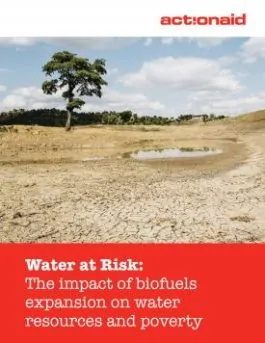Kelly Stone
October 15, 2015
40
Biofuels are considered to be a renewable resource because their feedstocks can be reproduced in a relatively short amount of time and they are not fossil fuel-based. However, these facts alone do not capture the full impact – either environmentally or socially – or establish the sustainability of biofuels. There are many resource demands associated with the cultivation of feedstocks and the production and refining of biofuels, including that they require much more water than any other energy carrier.
The production, trade, and consumption of biofuels and their feedstocks is happening at an ever-increasing rate, due largely to the rigorous blend mandates set by the United States’ Renewable Fuel Standard (RFS) and the European Union’s Renewable Energy Directive. Over 64 countries have followed this precedent and developed their own biofuels mandates, making examination of the impacts of large-scale biofuels production urgent, especially in feedstock producer countries where land use is radically shifting to meet increasing feedstock demands from developed countries.
